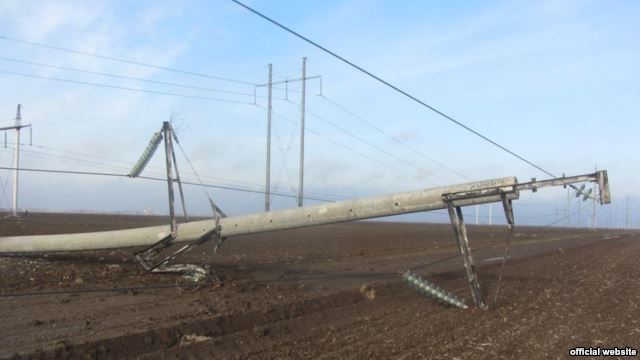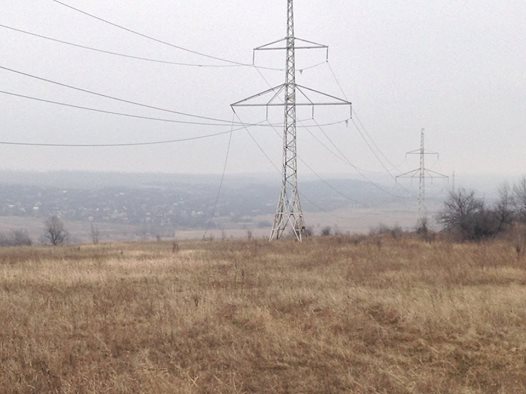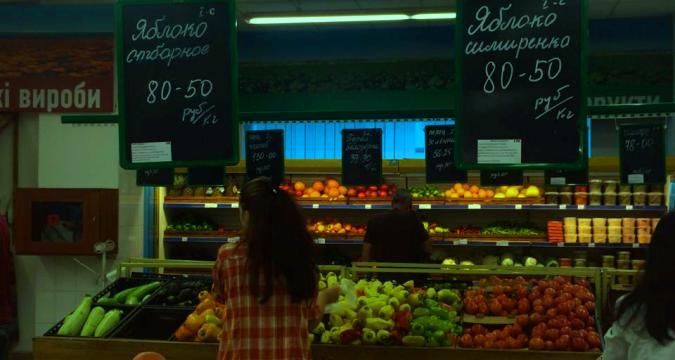A group of veterans attempt to block trade between Ukraine and the occupied Donbas; activists accuse authorities of making millions from trade with terrorists. The campaigners believe the blockade can cut off the funding to LDNR (“Luhansk and Donetsk People’s Republics”), and that the war can be stopped in this way. The Ukrainian Security Service says the blockade “has features of illegal activity.” The Prosecutor’s Office of Luhansk Oblast has opened criminal proceedings against its participants; the police unblocked one of the roads; Ukrainian Railways reports losses.
It has been two weeks since a trade blockade of the occupied parts of the Donbas was launched on January 25. Veterans of Ukrainian volunteer battalions and demobilized soldiers blocked the Shypilove-Svitlanove rail section which connects occupied Luhansk with Lysychansk and Popasna; four members of Parliament were among the participants. The Samopomich MP (and organizer of the trade blockade) Semen Semenchenko claimed that 12 freight trains with a total of more than 700 coaches were blocked on the first day of the blockade. A week later, the activists blocked the rail communication between Kurdyumivka and occupied Horlivka in Donetsk Oblast.
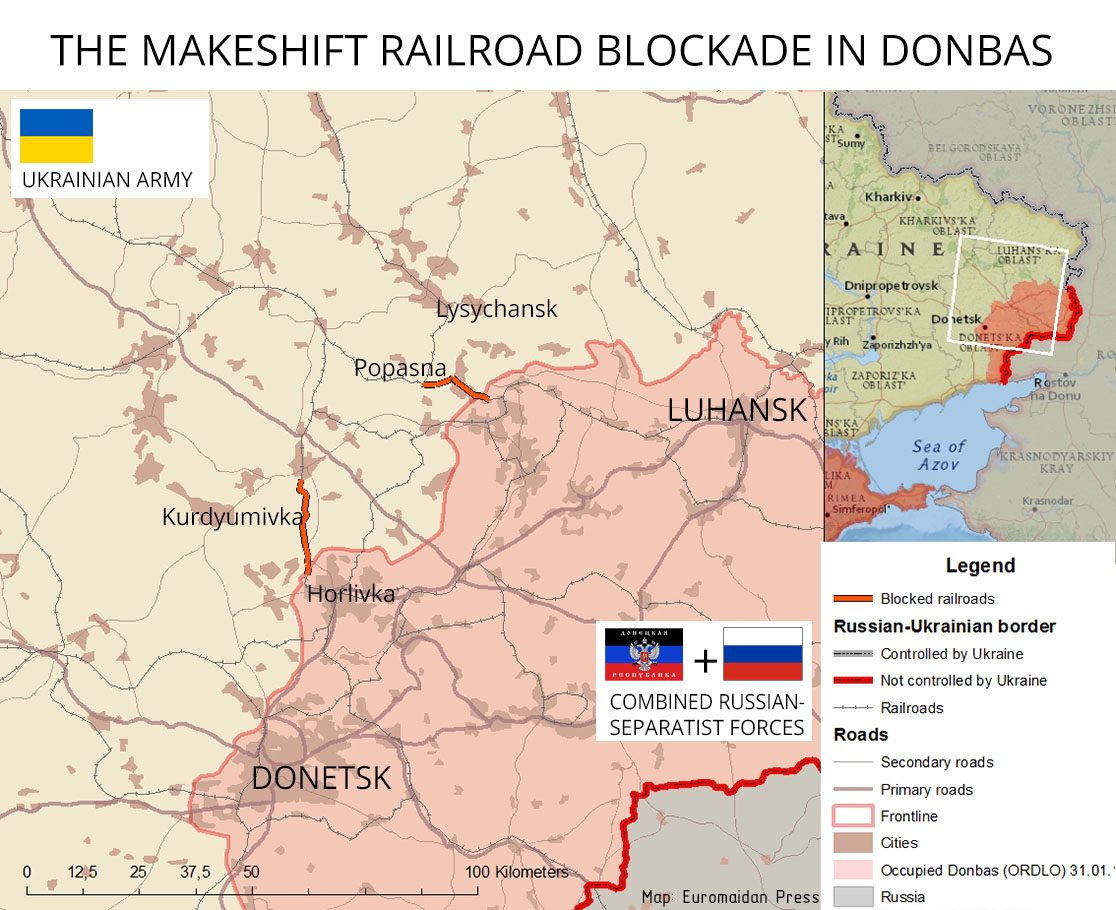
Read also: Ukrainian soldiers initiate trade blockade with occupied Donbas territories
A month before the blockade started, the secretary of Ukraine’s National Security and Defense Council (NSDCU) Oleksandr Turchynov stated that any blockade decisions that don’t come from the top work to destabilize the situation:
“If a decision is taken to launch a blockade, so be it. If the commander-in-chief [Poroshenko] does not take this decision, so be it. But we will not allow anybody who will try to set up their own improvised [blockade] checkpoints in the Anti-Terrorist Operation (ATO).”
This isn’t the first economic blockade of the occupied territories. Ukraine has previously placed financial and trade restrictions on “LDNR” and occupied Crimea.
In November 2014, Ukrainian financial institutions cut off all payments and banking services for the uncontrolled territories in order to comply with the Decree of the President of Ukraine № 875/2014, which enacted the decision of the NSDCU “On Urgent Measures to Stabilize the Social and Economic Situation in the Donetsk and Luhansk Regions”.
In 2015, Refat Chubarov, Head of the Mejlis of the Crimean Tatar people, announced that Crimean Tatars would block all trucks carrying goods into Russian-annexed Crimea on September 20. Since October 6, an energy blockade of Crimea was launched.
Both civil embargos lasted until the end of the year when the Ukrainian government adopted a decree restricting imports and exports to the occupied territories.
Jan07 #Yasynuvata @GirkinGirkin timber train https://t.co/MAdrSUv3SU
— English Luhansk (@loogunda) January 7, 2017
A Ukrainian timber train in occupied Yasynuvata on 7 January 2017.
Government strikes against activists, activists cry foul
Prime Minister of Ukraine Volodymyr Groysman expressed concern about the disruption of coal supplies from the Donbas, pointing out the fact that Ukraine has no alternative to supplies of anthracite from the uncontrolled territories as of yet. Power plants require a shift to other types of coal, but modernization will take time.
Governor of Luhansk Oblast Yurii Harbuz warned that the blockade “threatens the energy security of the country” at the height of winter: “If fuel supplies aren’t restarted, heat and power stations in central and western Ukraine will be left without fuel.”
One of the regional councils adopted an address to the Verkhovna Rada, manifesting support for the blockade.
The Prosecutor’s Office of Luhansk Oblast has opened criminal proceedings against the participants of the blockade on the grounds of “blocking a railroad.”
The Security Service of Ukraine (SBU) released a statement for the trade blockade blaming the embargo organizers for populist actions:
Recently, some politicians hiding behind patriotic slogans to “stop trading with the occupiers” that are allegedly covered by the SBU, and propagandizing the introduction of “economic blockade,” organized blocking of rail traffic to and from certain Donetsk and Luhansk districts.
…the SBU categorically deny any accusations of commercial interest in trade in so-called DNR/LNR. The SBU condemns populist actions of certain politicians, which are based on false representation and manipulation of citizens’ consciousness.
SBU says the trade between Ukraine and uncontrolled territories is legal and permitted for those who pay taxes, charges and other obligatory payments to the budget of Ukraine. At the same time, the SBU emphasizes the blockade “has features of illegal activity,” creates conditions for disrupting the stability of power systems and inflicts direct losses to the state. Moreover, the Security Service claims, the blockade adversely affects the process of releasing hostages, the POWs and other captives that are to be released by both Ukraine and the “LDNR” in accordance with the Minsk peace deal.
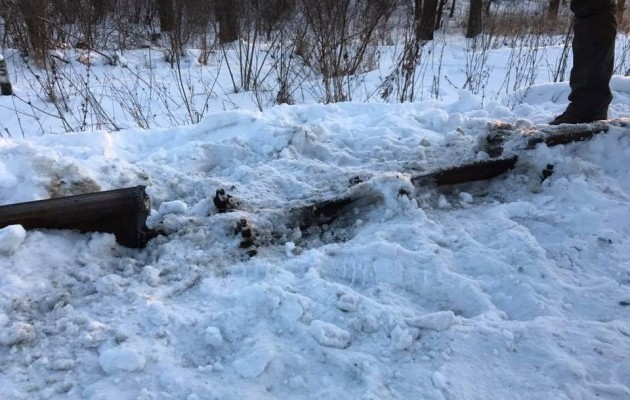
Ukrainian Railways (Ukrzaliznytsia) estimated their losses from blocked transportation processes and damage of railway assets (one meter of the rail was cut) at UAH 2.3 mn as of January 31; the loss increased to UAH 8.4 mn by February 6. Three days later Donetsk Railways, branch company of Ukrainian Railways, reported estimated losses of more than UAH 40 mn.
Tensions between police and the participants of the blockade rose on February 6. The activists blocked several buses on a road near the town of Chasiv Yar, and MPs Semen Semenchenko and Volodymyr Parasiuk claimed these buses were carrying titushki, hired thugs that they supposed were sent by the government to forcefully dispell the blockade.
https://www.facebook.com/volodymyr.parasiuk/videos/1219687904765645
But Donetsk Oblast police chief Vyacheslav Abroskin said that workers of the Kurakhove thermal power plant that were in the blocked buses and not titushki. The police was tasked to unblock the arterial road of the front-line region, “performed the duties within their competence” and the road was finally freed.
https://www.facebook.com/Vyacheslav.Abroskin/posts/1682258378733496
Semen Semenchenko noted:
I go on record as saying that today the Headquarters of the blockade has thwarted an attempt of bloody provocation against the participants of the blockade, in wyhich Donetsk Oblast police officers participated.
#Horlivka today, another train went towards #Bakhmut
by @phoenix_dnr pic.twitter.com/Wuk22JeQNi— English Luhansk (@loogunda) October 26, 2016
A train going from Horlivka towards Bakhmut on October 26, 2016.
Experts: more nay than yay
Military expert Dmytro Sniehyriov is rather positive about the blockade. In his interview with Gazeta.ua, he says that the economic blockade of the Donbas will hit Ukrainian law enforcement agencies by cutting short the smuggling streams which are shared by high-standing officials from both the Ukrainian side and those from the “Donetsk People’s Republic,” and fears that the blockade activists may be scapegoated.
The first President of Ukraine Leonid Kravchuk, on the other hand, criticized the initiative and said that the latest sharp spike in hostilities is “the response of militants to the blockade.”
Anatoliy Svyryd, one of the heroic defenders of the Donetsk Airport, agrees with Kravchuk and adds that “a blockade must be full-fledged and state-sanctioned,” not a makeshift operation run by activists.
Serg Marco, a military columnist at Petr&Mazepa, considers the action ineffective and believes that a real trade blockade is needed to prevent the Donbas from turning into another Transnistria, a region of Moldova de facto controlled by Russia.
Civil activist Levon Azizyan regards such activity as populism by organizers of the blockade for achieving political dividends; he adds that “a blockade cannot be effective unless the border with Russia is also closed.”
The Ukraine’s total export share in the economy of the Russian-backed enclaves is 25% according to an estimate by Olena Stepova, an inhabitant of the occupied territories. She believes the blockade of the occupied territories must be a state policy pursued by the state, not activists.
Read also: Ukrainian blockade of occupied Donbas to hit law enforcement agencies hardest — military expert






